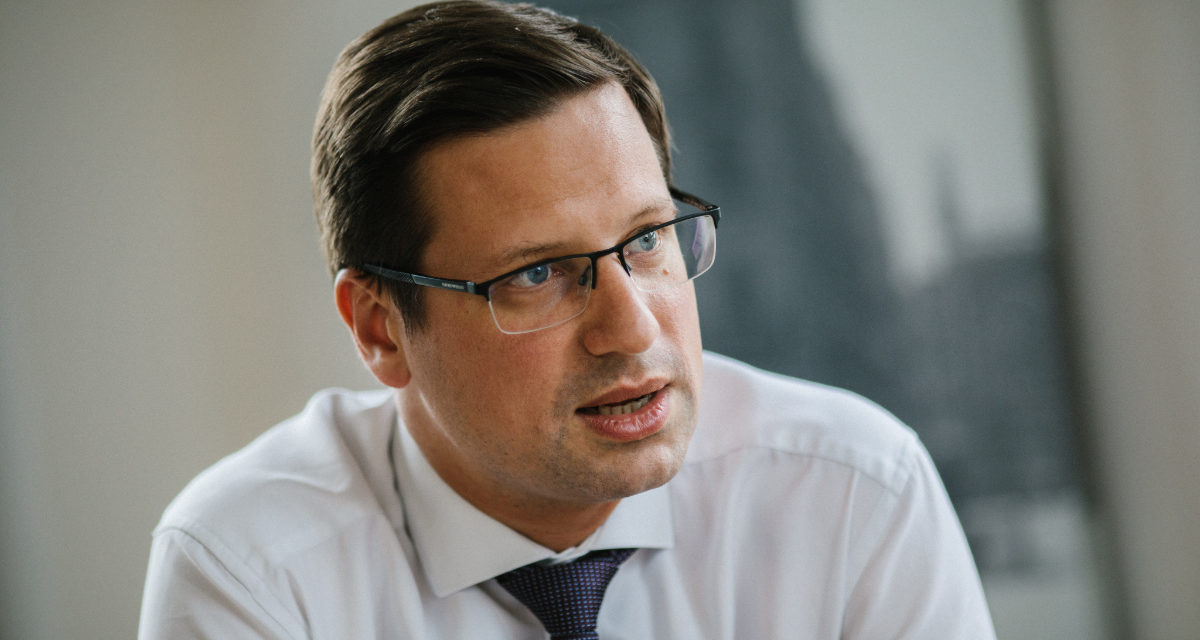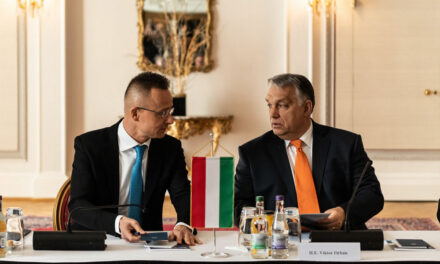Gergely Gulyás, the minister in charge of the Prime Minister's Office, talked about how he prepares for the government briefings, where questions are raised that could even make the government reconsider. In addition, he evaluated the year that has passed since the elections, touched on the difficulties caused by the war, the ongoing negotiations with the European Commission, and the domestic helplessness of the left-wing opposition supported from abroad.
- He is one of the most well-known ministers of the government, as many people watch the government news. How do you prepare for these events where you get questions from a very wide range?
– I have an irreplaceable advantage, because my everyday life is filled with government work and coordination between ministries. What may seem like preparation from the outside is reporting on our everyday work. Six days of the week are spent with government work, so it is a legitimate expectation that I know the most important matters and the arguments behind the decisions. I usually spend an hour preparing specifically for government information.
A test of patience
– Is the usually three-hour event more of a physical or mental challenge?
- It is not physically demanding at all, and the mental test depends on the journalists, precisely on what questions are received. It's good if the government information means mental strain. I am not in any way qualified to rate the work of journalists, but perhaps I am allowed to comment. It's boring when the same question is asked ten times. At the same time, my task is to answer the question patiently for the tenth time, since there are also journalists who understand something more slowly or many times. At the same time, there are issues that are substantive and innovative, and in such cases, one approach may prompt the government to consider it.
Election night
– The parliamentary elections were held a year ago, how do you remember those days?
– My answer will hardly be surprising: I was happy with the results, although I was almost certain that we would win the election. In the last few days, it appeared that the great majority of Hungarian voters - even many of those who might be critical of the government - do not take the risk that the current opposition government would represent. Especially in such a difficult situation as that which became clear to everyone with the outbreak of war. Looking back, weeks before the election, I predicted one hundred and twenty-five mandates, and I managed to win ten more than that. I guessed Mi Hazánk's entry and the number of mandates it won, while I guessed the left-wing opposition with ten seats more than they achieved. As much as I expected a confident victory, the level of confidence, thus the size of the difference, surprised even me.
The landslide victory was not undeservedly achieved by the governing parties, the left deserved the crushing defeat.Rule of law issue
- In the year that has passed since the election, the government seems to have received a blessing from heaven, since it was impossible to know that a sanction would be followed by a sanction, in addition, the European Commission is making it difficult to use financial resources. In the light of these, did their hopes come true, or did the difficulties prevail?
"Unfortunately, it lived up to expectations, because we all knew that a difficult period was coming." Brussels used double standards towards the Hungarian government before, so there was no reason to believe that this would suddenly change. And the Russian-Ukrainian war broke out more than a month before the election, and although we hoped that it would end quickly, even then most of the prognoses made it likely that a protracted war should be expected. It is certain that so far the more pessimistic scenarios have come true.
In relation to EU funds, let us add that the agreement on agricultural resources has been reached, thanks to which Hungarian farmers are receiving the money they are entitled to continuously. We have already pre-financed the Hungarian EU financial support, so the Hungarian state advanced the expenses and the European Union paid later.
Despite the current controversies, this practice reduces the risk that the country will be harmed by the behavior of Brussels.
Let's also not forget that our operative programs and the recovery fund plan have already been approved by the EU, so the goal now is to get the money as soon as possible. This is no longer a legal issue, since Brussels no longer has any legally founded claims, and we have found a solution to their demands. The final agreement is purely a political decision. The biggest mistake of Brussels today is that the European Commission is no longer the guardian of the treaties, as it is also stipulated in the Treaty of Lisbon, and Community law is not the guiding principle in the commission's actions towards Hungary. We are talking about an international organization where the rule of law, so the basic principles of the rule of law do not apply.
- Last September, an agreement was reached between the European Commission and Hungary in order to pay EU funds, but it seems that new ones are being added to the expectations formulated at that time. Is this only being done with the intention of stalling, or does this committee no longer want to pay from the funds due to Hungary until 2024, until the European Parliament elections?
– We do not know this, because an agreement can be reached on important issues even within a few days. Regardless of the attitude of Brussels, the Hungarian government's task is to be ready so that when the intention of the committee is there, the agreement can be reached.
In the judiciary, we are very close to this. In other areas, there may be protracted debates, but it must also be seen that neither the disagreements on the Child Protection Act, nor the differing opinions on migration issues, are such an overarching condition that would block all the money.
The government's fight for peace is becoming less and less lonely
– Another big task would be to reach peace, although more and more people believe that this will not happen this year. To what extent is the Hungarian government fighting alone?
- At the moment, the Hungarian desire for peace is really lonely in the European Union, but I think it will become less and less so. Common sense has to come into play sooner or later. In this case, common sense means that the war must be avoided so that other countries become part of it, because then it could easily turn into a world war. And this is a danger that no leader of any country can take on with a calm, rational policy. Of course, Hungary also stands in solidarity with Ukraine, we condemned the attack on Ukraine, which obviously violates international law. We provide humanitarian and financial aid to Ukraine, as well as take in Ukrainian refugees, but even this should make it clear that if a NATO country becomes part of the war, from then on there is a danger that NATO cannot avoid the same. And that would mean a military confrontation between nuclear powers.
We do not dispute Ukraine's right to self-defense, we respect the soldiers fighting to defend their country, but there must be a European limit to the support of self-defense, since we cannot risk the danger of a world war.- It's as if some countries don't care about this and are already sending nuclear-type weapons to Ukraine, to which the Russian leaders reacted quite firmly. Do you think the world war is an immediate threat?
– I hope that there is enough common sense left on both sides, especially on the side of the nuclear powers, that they definitely want to avoid such a scenario. It is also a fact that, unfortunately, this danger increases with the transport of weapons, especially weapons of this kind. After the outbreak of the war, the German government's first statements were about possibly sending helmets, and now they are already giving Ukraine tanks, and even now there is a discussion about sending fighter planes.
The full interview can be read in Magyar Hírlap!
Featured image: Árpád Földházi













